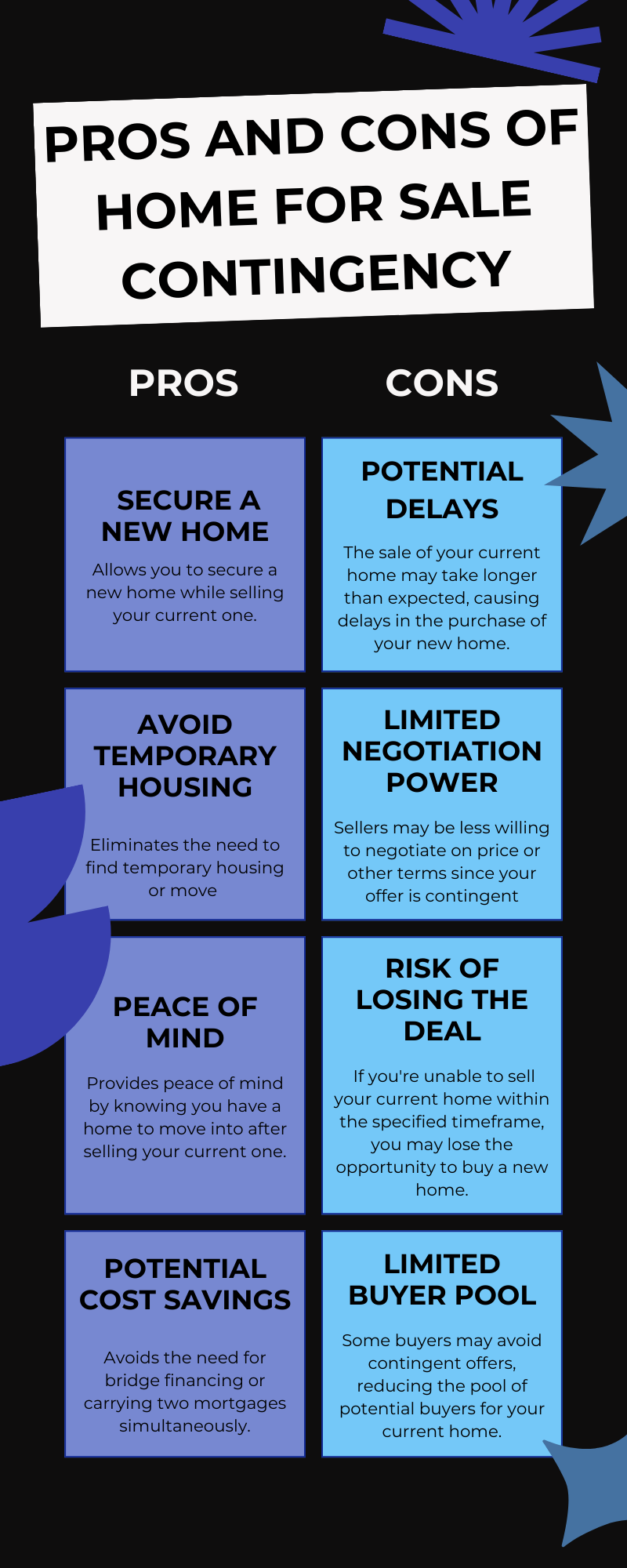Are you a homebuyer who is unsure about what home sale contingency is and how it can affect your home-buying process? Well, we have got your back!
One form of contingency clause that is frequently included in a real estate sales contract or an agreement to buy real estate is a home sale contingency. The clause specifies that the deal is subject to (or reliant upon) a number of events, typically the sale of the buyer’s house.
A home sale contingency can make offers less attractive to sellers, but it can be beneficial for buyers who need to sell their existing home before purchasing a new one.
To understand better, let us dive deep into home sale contingency and also put light on its impact on buyers.
What Is A Home Sale Contingency?
A home sale contingency is a type of real estate contract where purchasing a new home is contingent on selling the buyer’s current home.
In other words, it is a clause that enables buyers to withdraw from a real estate deal if they can’t sell their current home by a specified date. Sellers can still market their property but must notify the buyer if they receive other offers. However, sellers risk waiting longer for their property to sell with this contingency in place.
It can provide them with flexibility, but as it may also make the offer less appealing to sellers and delay closing. The buyers should comprehend the terms before agreeing to them.
To mitigate this issue, buyers can offer a higher price or a shorter contingency period.
Types Of Home Sale Contingencies
There are mainly two types of home sale contingencies – sale contingency, and settlement contingency. Let’s discuss them closely.
- Sale Contingency
A sale contingency requires the buyer to sell their present home. In order to raise the funds necessary to purchase the new home they are interested in. This provision is suitable for buyers whose current residence has not yet been offered or accepted. This kind of contingency clause typically enables a seller to keep marketing the house to more prospective buyers. Following that, the prospective buyer would have a set amount of time, such as one or two business days, to decide whether to proceed with the sale or end the contingency provision so the seller may close the deal with another buyer. The buyer would then receive a refund of their earnest money and they would no longer have the option to buy the house. - Settlement Contingency
If the buyer has previously advertised their home, found a buyer for it. Also has a predetermined settlement date by which the sale will be concluded, a settlement contingency is used. However, when it comes to purchasing and selling a home, anything might go wrong at the last minute. This clause safeguards the buyer in the event that the transaction is unsuccessful for whatever reason. Since it forbids the seller from considering other offers on the property for a predetermined amount of time. Failure to settle the contract before the deadline would result in the contract expiring.
Is A Home Sale Contingency Really Beneficial For Buyers?
Buyers interested in purchasing a new house while selling their current one often face a dilemma. A viable solution to this is a home sale contingency.
By including this clause in their purchase agreement, buyers can avoid the risk of carrying two mortgages and enjoy more certainty throughout the buying process.
With this type of contingency, buyers have more time to sell their current house before purchasing their next one. In case their current house does not sell within the agreed-upon time frame. Then they may withdraw from the purchase agreement without facing any penalties.
This type of contingency can be especially helpful in a seller’s market when there are many listings and potential buyers face stiff competition. However, it is important for buyers to weigh carefully all types of contingencies available to them. Also, work with an experienced real estate agent or realtor who can guide them through every step of the process.
However, it can make the offer less attractive to sellers who favor offers without contingencies.
Careful consideration of pros- avoiding financial risks and providing certainty. As well as cons- possible loss of desired property and delayed closing process must be taken before including this clause.
Can A Contingent Offer Fall Through?
Contingent offers carry inherent risks, so it’s essential to understand and prepare for potential challenges when navigating a home sale contingency.
While they can help buyers secure their next home before selling their current one. These offers can also fall through if the conditions of the contingency are not met, such as home inspections, financing, or appraisal. Buyers should be aware of this possibility and have backup plans. Sellers may still accept backup offers during a contingency period.
To minimize this risk, buyers should communicate clearly with all involved parties and work with their realtors. To understand other types of contingencies available in the real estate market.
Being aware of these factors can help buyers make informed decisions.
When handling a home sale contingency, it’s crucial to comprehend the conditions and timeline. Work with your agent to negotiate favorable terms, keep communication open with all parties. Also, have alternative plans ready in case of a contingency failure.
Bottom Line
Home sale contingency provides a safety net for homebuyers seeking to sell their current property before closing on a new one. However, it can also lead to delays and complications in the home-buying process.
It is crucial to weigh the pros and cons of this contingency carefully before making an offer or entering into negotiations.
If you have any questions about home sale contingencies or other real estate contingencies, get in touch now. Our team of experts is always here to guide you through the process and help you make informed decisions.


